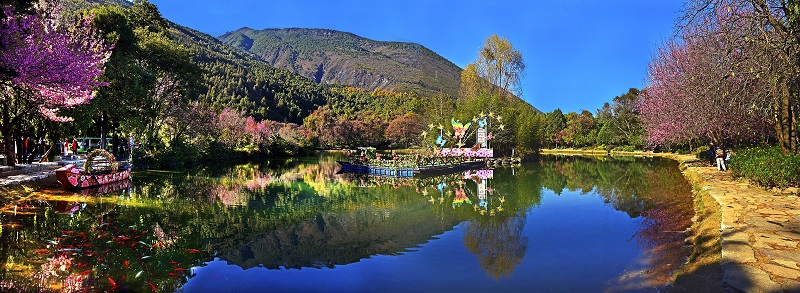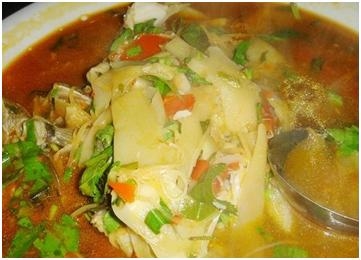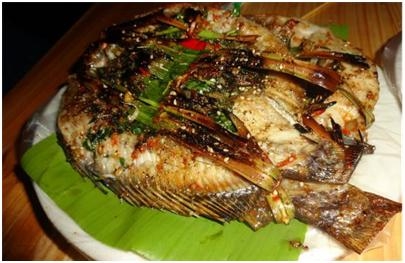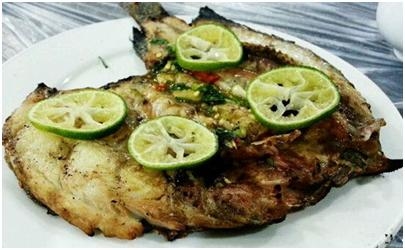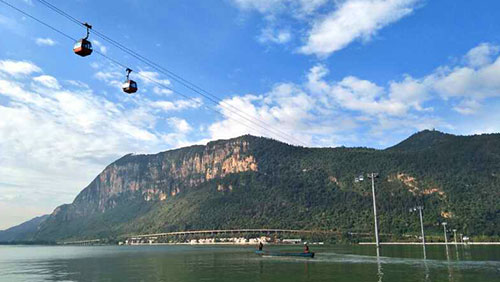FT312編程代寫、代做C++,Python程序
時間:2024-06-28 來源: 作者: 我要糾錯
FT312 Studies of FilmMaking
June 24 - July 12, 2024
Monday through Friday
Course Delivery
The class will be delivered in the format of in-person. Other than 2 hours
and 40 minutes’ class per day, the teaching assistant(s) will arrange 2 hours
and 30 minutes’ discussion sessions with students per week.
Contact Hours
(Lecture Hours)
66 contact hours Credits 4 units
Self-study
21 extra hours per week * 3 weeks are required for independent reading and
research
Required Texts
(with ISBN)
List of readings – selected
Prerequisite
Students are expected to have a thorough knowledge of all material covered
in an introductory film making course.
2 /
7
Course Overview
Studies in Film Making explores the creative and communicative possibilities of film, video and other
audio-visual technologies. The course will develop your understanding of film as a technological
medium by exploring some of its basic forms and features and by looking at different aspects of moving
image production through a practical and formalist approach. Studies in Film Making prioritizes
practice-based learning (both in terms of the ways that it can develop your understanding of key concepts in
the discipline and because it can enhance your skills in creative thinking). For this reason, many of the
concepts that we will be examining in the course will be explored through practical exercises and
through case studies of specific film and video practices—from classics of experimental film to the latest
new media. Each of these practical exercises and case studies is designed to develop your understanding
of the technical, aesthetic, and sensory workings and potential of audio-visual media and your knowledge
of some of the ways that artists and mainstream producers have explored film and video. This knowledge
can then be drawn on and developed in the creative work that you produce in the course.
In this course you will explore ways of preparing narrative outlines and storyboards, learn how to capture
and generate images and sounds, experiment with existing images and sounds and the editing process.
The course will explore the creative potential of audiovisual media and deal with a range of practical and
conceptual problems in developing a larger group project.
Learning Outcomes
On completion of this course, you should be able to:
1. To introduce some of the creative and conceptual skills required to devise your own unique projects and
to help you recognize the practical decisions faced in the production process.
2. To develop your visual and aural sensitivities and apply them to a diverse range of audiovisual
exercises and projects.
3. To allow you to explore the creative potential of audio-visual media in order to enhance your
analytical skills in your further study of film and media.
Lecture Room: North Building 105
Course Instructor: Kaisi Wang (Tracy)
Brief Biography:
Kaisi Wang is a documentary filmmaker, producer, scriptwriter and camerawoman who has worked in
media industry for six years within a wide range of video production. She had been directing and writing
for radio programmes, TV reality shows, TV commercials and documentary films. She set up a
production company in 2016, worked on project management and promotion as a producer. Her
experiences would help students to understand filmmaking skills with an international view of video
marketing.
Office Room: North Building 212
Assessments and Grading Policy
Video Project Treatment Brochure 20%
Pitch Presentation 20%
Group Video Production 48%
Attendance 12%
Assessment 1 Video Project Treatment Brochure
Grade: 20% of final mark
Deadline: 8th July 2024
Please research and create a treatment for your final video project.
A treatment must include the following:
1. Project working title
2. Synopsis (Maximum 500 words)
3. Project History – i.e., what got you interested in this project and why (Maximum 100 words)
4. Current state of research (Maximum 500 words)
5. Current state of Production (Maximum 500 words)
6. Talent attached/ Type of talent you are seeking
7. Proposed Production Schedule
8. Detailed Budget and Financing Plan
9. Audience Research
Assessment 2 Pitch Presentation
Grade: 20% of final mark
Deadline: 8th July 2024
Please make a presentation towards the final video project. Each group will have 5-10mins. You need to
bring the paper brochure and hand-in to the examiner before the presentation.
Assessment 3 Group Video Production
Grade: 48% of final mark
Deadline: 11th July 2024, no later than 17:00
The assessment requires a 5 minutes video production. Students are required to work in groups,
teamwork and individual performance will be observed and evaluated by the examiner.
You have to agree with the exact topic with your tutor before you embark on this film. As with all
University work, you will be given 10% leeway – this means that your video could be between 4’30’’
and 5’30’’ long.
Homework and Daily Exercise
You will have homework after each lecture. Please register an account on https://www.lofter.com/ and
upload your exercises (film review, picture and video) according to the homework requirement. If you
can complete all the exercises, extra points will be given to your final mark.
4 /
7
Grading Scale is as follows
Number grade Letter grade GPA
90-100 A 4.0
85-89 A- 3.7
80-84 B+ 3.3
75-79 B 3.0
70-74 B- 2.7
67-69 C+ 2.3
65-66 C 2.0
62-64 C- 1.7
60-61 D 1.0
≤59 F (Failure) 0
In general the following grade related criteria will apply to all assessments:
Fail
Percentage 0 - 59
Set work not completed
Lacking in skill and originality in use of relevant medium;
Scant grasp of the artistic and cultural issues which the project raises
No evidence of methodical research and/or project development/management; has not addressed the
issues/problems involved
3rd
Percentage 60 - 65
Set work partially completed
Basic skills demonstrated in use of the relevant medium
Limited grasp of the artistic and cultural issues which the project raises
Some evidence of methodical research and/or project development/management; has attempted to
address the issues/problems involved
2:2
Percentage 65 - 75
Set work fully completed
Satisfactory skills and some evidence of originality demonstrated in use of the relevant medium
Adequate grasp of the artistic and cultural issues which the project raises
Evidence of consistent and methodical research and/or project development/management; has
attempted to address the issues/problems involved
5 /
7
2:1
Percentage 75 - 85
All set work completed to a high standard
Ideas and skills display evidence of originality and breadth and clearly integrate theory and practice
A critical grasp of the artistic and cultural issues which the project raises
Evidence of clear and concise research methods and coherent project development/management
practices; an evident ability to address and solve the issues/problems involved
First
Percentage 85+
All set work completed to a very high standard
High level of skills and originality of ideas demonstrated, and clear evidence of well-integrated critical
theory and practice
A strong critical grasp of the artistic and cultural issues which the project raises
Clear and concise research methods and coherent project development/management strategies and
practices; an evident ability to address and solve the issues/problems involved
6 /
7
Class Schedule/Teaching Plan
Week Content Readings
Week 1
Introduction to Course, Objectives and Assessments
Filmmaking: Jobs and Responsibility
The Art of Watching Films
(Dennis W.Petrie and Joseph
M.Boggs)
Fiction Storytelling and Development
Directing Film Techniques
and Aesthetics/Chapter 3
(M.Rabiger)
Team Lab: Picture Storytelling Practice Practical work
Filmmaking Craft: Camera, Lighting and Colour
Directing Film Techniques
and Aesthetics/Chapter 12
(M.Rabiger)
Creative Script Writing and Video Exercise Practical work
Week 2
Fiction Project Research and Producing: Intro to
Advertisement
Creative Strategy of
TVC/Producer to Producer:
A Step-by-Step Guide to
Low Budgets Independent
Film Producing (M.Ryan)
Team Lab: TVC Practice Practical work
Non-fiction Storytelling: Intro to Documentary
Introduction to
Documentary/Chapter 5&6
(B.Nichols)
Non-fiction Craft: Casting and Interview
Creative Interviewing: The
Writer’s Guide to Gathering
Information by Asking
Questions/Chapter 3 (K.
Metzler)
Group Tutorial: Prepare for Project Treatment Practical work
7 /
7
Week 3
Film Project Pitch Presentation Practical work
Visual Storytelling: Editing Principle
Directing Film Techniques
and Aesthetics/Chapter 40
(M.Rabiger)
Final Project Preparation: Shooting and Editing Practical work
Final Project Preparation: Work on film project Hand in
project by 17:00 Beijing Time
Practical work
Distribution & Exhibition: Screening Final Work Practical work
Lecture Plan: 1h Lecture, 1.5h Film Review and Discussion
Practical Work: 2h Exercise, 40mins Review and Discussion
Please bring your camera (phone), laptop and iPad with you when you’re attending all practical sessions.
請加QQ:99515681 郵箱:99515681@qq.com WX:codinghelp
標簽:
掃一掃在手機打開當前頁
注:本網條致力提供真實有用信息,所轉載的內容,其版權均由原作者和資料提供方所擁有!若有任何不適煩請聯系我們,將會在24小時內刪除。
昆明生活資訊
推薦信息
相關文章








